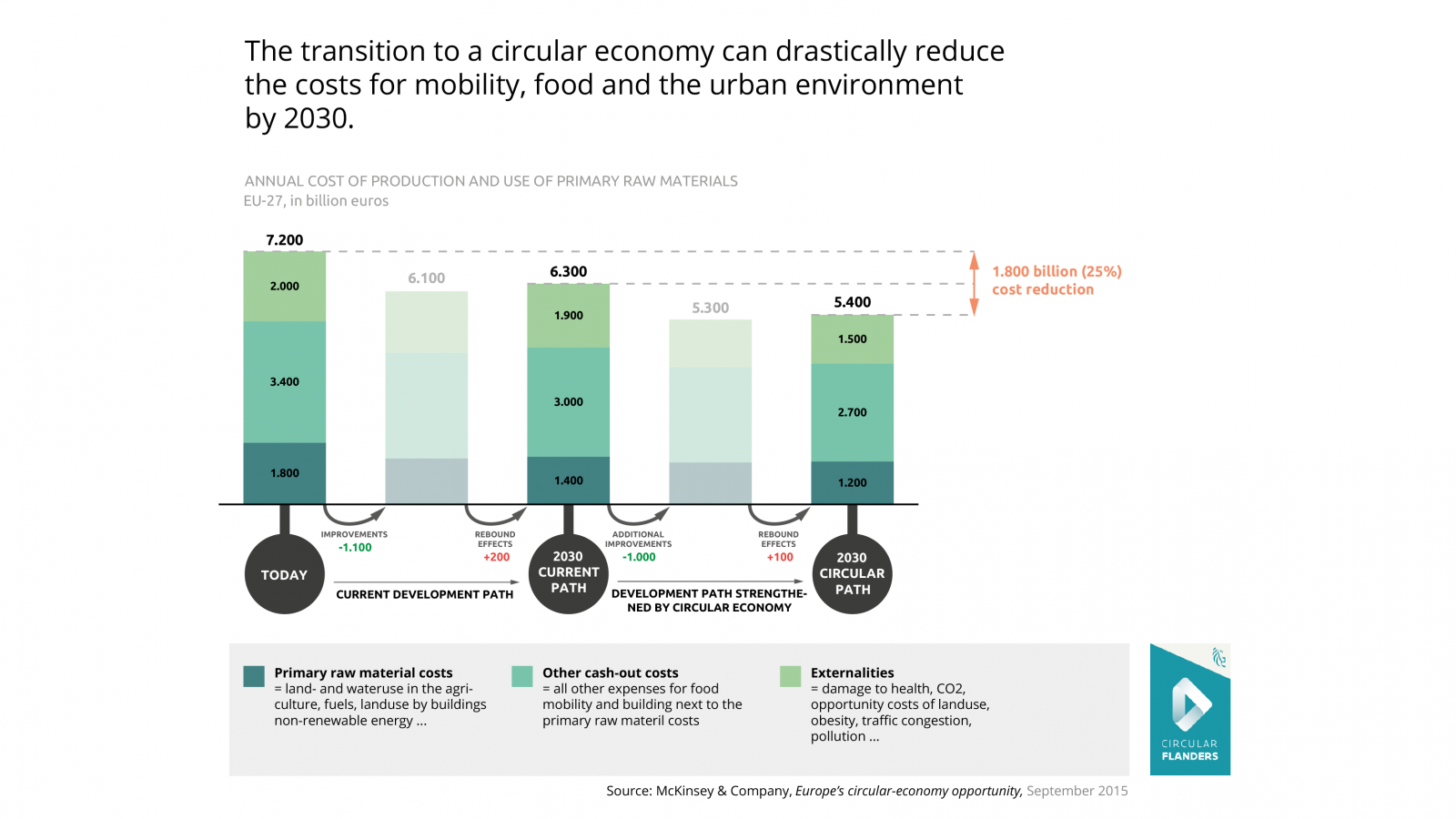Topics
We organise our actions in six thematic & strategic agendas:
Strategic Agendas:
Bio-economy
Circular Construction
Chemicals/Plastics
Manufacturing Industry
Food Chain
Water Cycles
Seven leverages provide additional support:
Leverage effects:
Lever Policy Instruments
Lever Circular Procurement
Lever Communication
Lever Innovation & Entrepreneurship
Lever Financing
Lever Jobs & Skills
Lever Research
What, why and how?
Why are we pursuing a circular economy?
Future visions 2050
How do we see our circular future?
About our management
Who steers what at Flanders Circular?

From a purely economic point of view, the advantages of the turn to the circular economy speak volumes. If we make the resources in the entire value chain more efficient, we can reduce the need for materials in Europe by an estimated 17 to 24% by 2030. The European business world could save 630 billion euros annually by using resources better. Services and value can increase the EU’s GDP by 3.9% by getting rid of the materials costs and creating new products. This means that the circular economy could create 1.2 to 3 million extra jobs by 2030.
Indicative estimates of the economic benefits of the circular economy for Flanders points to a savings in material costs of 2 to 3.5% of the Flemish GDP and the creation of 27,000 additional jobs, ranging from high-tech to lower-skilled.
Indicatieve schattingen van de economische baten van de circulaire economie voor Vlaanderen wijzen op besparingen op materiaalkost van 2 tot 3,5% van het Vlaamse bbp en de creatie van 27.000 bijkomende jobs, gaande van hoogtechnologisch tot kort geschoold. STUDIE IN HET ENGELS??


















